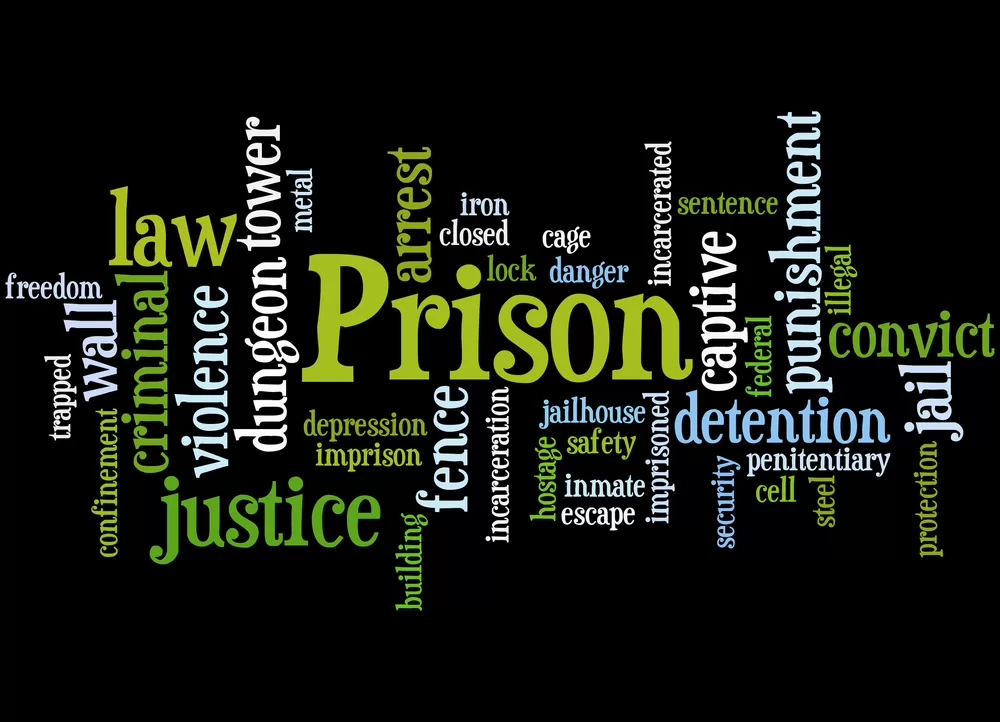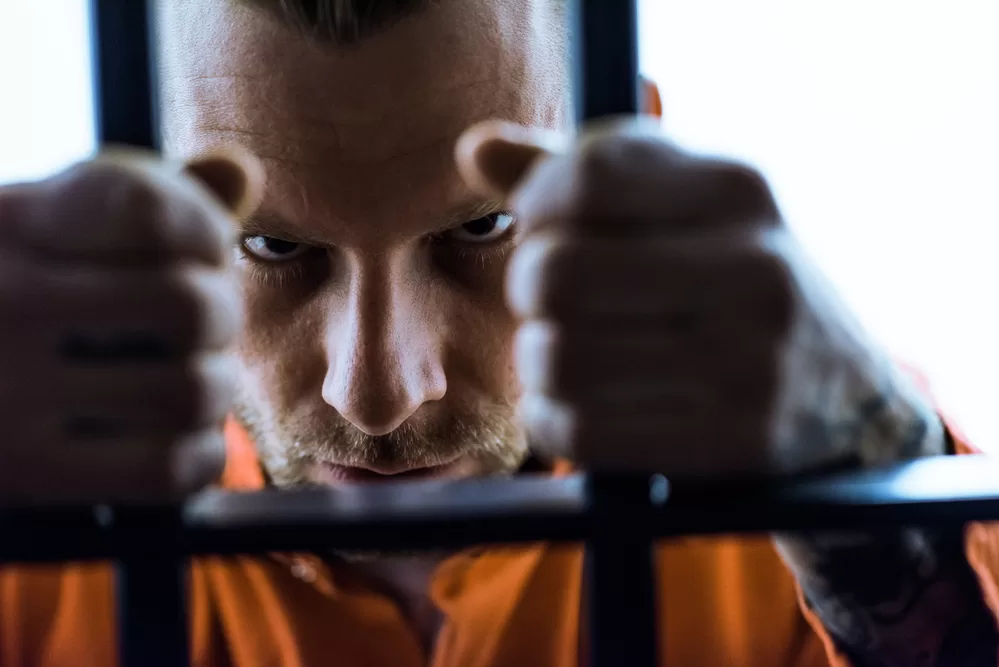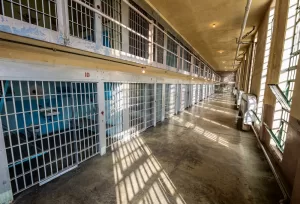Unlocking the Truth: The Psychological Effects of Wrongful Incarceration
Imagine being wrongfully accused and thrown behind bars for a crime you didn’t commit. Your freedom stolen, your dreams shattered, and your entire world turned upside down. This nightmare scenario is all too real for countless individuals who have experienced the harrowing ordeal of wrongful incarceration.
In this thought-provoking blog post, we delve deep into the psychological effects that this devastating injustice has on not only the victims themselves but also their families and communities. Prepare to be enlightened as we uncover the profound impact that wrongful incarceration can have on every aspect of one’s life.
Join us on this emotional journey as we explore the scars left by an unjust system, shed light on these hidden wounds, and ultimately seek justice for those whose lives have been irreversibly altered. Brace yourself for a rollercoaster of emotions as we navigate through tales of resilience, heartbreak, and redemption.
Are you ready? Let’s embark together on a quest to understand The Psychological Effects of Wrongful Incarceration!
The Impact of Wrongful Incarceration on the Individual
Being wrongfully incarcerated is a deeply traumatic experience that can have lasting psychological effects on an individual. The

emotional toll of being imprisoned for a crime they did not commit is immeasurable.
First and foremost, the loss of freedom can be extremely distressing. Imagine waking up every day in a prison cell, surrounded by individuals who may be dangerous or violent. This constant fear and anxiety can lead to depression, insomnia, and even post-traumatic stress disorder (PTSD).
Moreover, wrongful incarceration often brings feelings of anger, frustration, and helplessness. Knowing that one’s life has been taken away unjustly can fuel a sense of injustice and bitterness towards the system that failed them.
Additionally, wrongful incarceration can damage an individual’s self-esteem and confidence. Being labeled as a criminal even though they are innocent takes its toll on their sense of identity. It becomes difficult to trust others or believe in oneself when society sees them through the lens of someone who has committed a crime.
Furthermore, wrongful incarceration disrupts personal relationships. Family members may feel helpless watching their loved one suffer behind bars, for something they didn’t do. It strains relationships with partners, children, parents – causing pain and turmoil within families.
Lastly but importantly is the long-term impact on an individual’s future prospects upon release from prison. They may face difficulties finding employment due to their unjust association with criminality which adds financial strain further exacerbating psychological distress.
Wrongful incarceration carries immense psychological burdens for those who experience it firsthand; it shatters lives physically emotionally socially mentally leaving scars that are hard to heal without proper support systems in place
The Impact of Wrongful Incarceration on the Family
Wrongful incarceration not only affects the individual who is wrongfully imprisoned, but it also has far-reaching consequences for their family members. The emotional and psychological toll can be devastating, leaving lasting scars that are difficult to heal.
There is a profound sense of loss experienced by the family when their loved one is taken away unjustly. Suddenly, they are left wondering how to explain this injustice to children or other relatives who may struggle to understand why their loved one has been incarcerated.
In addition to dealing with feelings of grief and disbelief, families often face financial hardships due to legal fees and loss of income. Many spouses become single parents overnight, juggling responsibilities and navigating a complex legal system in an attempt to prove their loved one’s innocence.
Moreover, wrongful incarceration places immense strain on relationships within the family unit. Spouses may experience feelings of loneliness and isolation as they try to manage household responsibilities alone while worrying about their partner’s well-being behind bars.
Children are vulnerable victims too, enduring disruptions in routine and missing out on crucial bonding time with their incarcerated parent. They may also face stigma from peers who mistakenly believe that someone being in prison automatically means they’re guilty.
Furthermore, the constant uncertainty surrounding a wrongful conviction takes an emotional toll on everyone involved. Families live with the fear that justice will never be served or that their loved one will suffer irreparable harm while behind bars.
In conclusion (not conclusive), wrongful incarceration tears at the fabric of families’ lives – emotionally, financially, and socially. It leaves them grappling with trauma long after the individual has been exonerated. Support systems for these families are vital during this challenging time so they can begin healing together and rebuilding what was unjustly taken from them.
The Impact of Wrongful Incarceration on the Community
Wrongful incarceration doesn’t just affect the individual and their family; it also has a profound impact on the community as a whole. When someone is wrongfully imprisoned, it shakes the foundation of trust in our justice system and undermines faith in law enforcement.
Wrongful incarceration erodes public confidence in our legal institutions. It raises questions about the reliability and integrity of investigations, prosecutions, and court verdicts. People start to question whether innocent individuals are being convicted more often than we realize. This breakdown of trust can lead to increased skepticism towards law enforcement officers and prosecutors.
When an innocent person is incarcerated for a crime they did not commit, it means that the real perpetrator remains free. This poses a significant threat to public safety as criminals who should be behind bars continue to roam freely within communities. The lack of accountability for these actual offenders creates fear among residents and can contribute to higher crime rates.
Furthermore, wrongful incarceration drains valuable resources from communities. Taxpayers foot the bill for both prosecuting innocent individuals and compensating them after their release through lawsuits or settlement agreements. These financial burdens limit funds available for essential services like education, healthcare, infrastructure improvements, and social programs.
Moreover, when wrongful convictions come to light or are overturned years later due to new evidence or advancements in forensic technology, it casts doubt on other cases handled by those involved in the original investigation or prosecution process. The ripple effect spreads throughout the criminal justice system leading many people questioning past verdicts.
Lastly but not least importantly is how wrongful incarcerations impact community members emotionally. Witnessing an innocent person suffer imprisonment unjustly can create feelings of anger, helplessness
Conclusion
The impact of wrongful incarceration goes far beyond the individual who is unjustly imprisoned. It ripples through families, communities, and society as a whole. The psychological effects can be devastating, leaving lasting scars that are not easily healed.
For the individual who has been wrongfully incarcerated, the trauma can be overwhelming. They may experience feelings of anger, frustration, and helplessness. Their sense of identity and self-worth may be shattered, as they struggle to come to terms with being labeled a criminal when they are innocent. The toll on their mental health can be immense.
But it doesn’t stop there. Wrongful incarceration also takes a significant toll on family members who must endure the pain of seeing their loved one suffer unjustly. They too may experience feelings of guilt, shame, and powerlessness in the face of an unjust system.
Communities also bear witness to the consequences of wrongful incarceration. Trust in law enforcement and the justice system erodes when innocence is disregarded or overlooked. This loss of trust can have long-lasting repercussions on community cohesion and cooperation with authorities.
In conclusion (without using those words), it is clear that wrongful incarceration has deep psychological effects that extend far beyond just one person’s life. Healing these wounds requires support from various sources – legal assistance for exoneration efforts, counseling services for both individuals and families affected by this injustice – but most importantly recognition from society at large that these injustices should never happen again.
How Can Lawsuit Cash Today Help ?
If you or a loved one has experienced the devastating effects of wrongful incarceration, you know that the road to justice can be long and arduous. Financial strain is often an additional burden during this challenging time. This is where Lawsuit Cash Today can provide much-needed help.
Lawsuit Cash Today understands the financial hardships faced by wrongfully incarcerated individuals and their families. We offer pre-settlement funding, also known as lawsuit cash advances, to help bridge the gap until your case reaches its resolution.
Our goal is to alleviate some of the financial stress so that you can focus on rebuilding your life after wrongful incarceration. With our fast and easy application process, we strive to provide funding within 24 hours of approval.
By receiving a lawsuit cash advance from Lawsuit Cash Today, you gain access to immediate funds that can be used for various purposes such as living expenses, legal fees, healthcare costs, or even pursuing educational opportunities.
We believe in fighting for justice not only in the courtroom but also in providing support to those who have been wronged by our flawed criminal justice system. Our team is committed to delivering compassionate assistance during these difficult times.
Don’t let financial constraints prevent you from seeking justice and rebuilding your life after wrongful incarceration. Contact Lawsuit Cash Today today and let us help ease your burden so that you can focus on moving forward with confidence.
Frequently Asked Questions and Answers
Q: Can wrongful incarceration lead to mental health issues?
A: Wrongful incarceration can have severe psychological effects on individuals. Being wrongly imprisoned for a crime they did not commit can lead to feelings of anger, frustration, and hopelessness. It can also cause anxiety, depression, and post-traumatic stress disorder (PTSD). The trauma of being confined in a prison cell unjustly can leave lasting scars on a person’s mental well-being.
Q: How does wrongful incarceration affect family members?
A: Family members of wrongfully incarcerated individuals often experience immense emotional distress. They may feel shock, disbelief, and helplessness upon learning about their loved one’s situation. The strain of enduring prolonged separations from their family member can also take a toll on relationships within the family unit.
Q: What impact does wrongful incarceration have on the community?
A: Wrongful incarcerations not only harm the individual and their family but also have broader implications for society. Communities suffer when innocent people are locked away while the real perpetrators remain free. Trust in the criminal justice system is eroded, leading to skepticism towards law enforcement authorities and legal institutions.
Q: How long does it take for someone who was wrongfully incarcerated to recover emotionally?
A: The recovery process varies from person to person as everyone copes with trauma differently. Some wrongfully incarcerated individuals may find solace through therapy or support groups, helping them heal over time. However, others may struggle with trust issues and residual emotional pain indefinitely.
Remember that these answers are just an overview of some commonly asked questions regarding the psychological effects of wrongful incarceration. Each case is unique, so it’s important to seek professional help if you or someone you know has experienced this injustice firsthand.
Table of Contents
– Introduction
– The Impact of Wrongful Incarceration on the Individual
– The Impact of Wrongful Incarceration on the Family
– The Impact of Wrongful Incarceration on the Community
– How Can Lawsuit Cash Today Help?
– Frequently Asked Questions and Answers
The Psychological Effects of Wrongful Incarceration can be devastating, not only for individuals who have been wrongfully imprisoned but also for their families and communities. This article has explored the various ways in which wrongful incarceration can impact different aspects of a person’s life.
We have discussed how being falsely accused and imprisoned can lead to feelings of anger, frustration, anxiety, depression, and even post-traumatic stress disorder (PTSD) among those who are innocent. The psychological toll it takes on individuals is immense, often resulting in long-lasting emotional scars that may never fully heal.
Furthermore, we have examined how wrongful incarceration affects families. Family members experience a wide range of emotions such as guilt, shame, helplessness, and grief when their loved one is wrongfully incarcerated. Relationships within the family unit become strained due to financial hardships or stigma associated with having a family member behind bars.
Additionally, we have delved into how wrongful incarceration impacts communities. It erodes trust in the justice system and creates a sense of fear among community members who may worry about their own safety or vulnerability to false accusations. The social fabric within neighborhoods can be torn apart as people question whether they can rely on law enforcement and institutions meant to protect them.
At this point in your reading journey through this article about the psychological effects of wrongful incarceration comes an important question: How Can Lawsuit Cash Today Help?
Lawsuit Cash Today understands that those who have been wrongfully incarcerated face tremendous challenges both emotionally and financially. We provide pre-settlement funding solutions to help alleviate some of these burdens during ongoing legal battles seeking justice for victims.
Our lawsuit cash advances can be used to cover living expenses, or virtually, any way you choose.
If You Are Seeking A Pre Settlement Loan – Simply – CLICK HERE
Related Articles:
Do you get money if you are wrongly imprisoned?
Wrongful Imprisonment Lawsuits
Wrongful Incarceration Lawsuit Funding
Navigating Litigation Funding: Tips and Advice for Plaintiffs and Attorneys
The Risks When You Settle Your Personal Injury Lawsuit Too Soon



